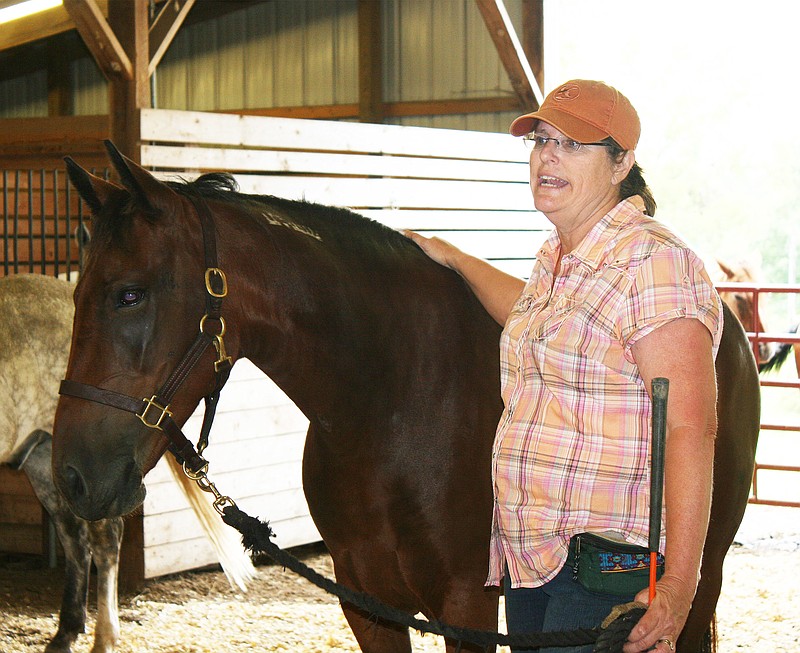Domesticated mustangs whipped their tails and flinched to keep flies at bay at CrossWind Ranch as children petted and groomed them, Saturday. A horse whinnied and Caleb Mayer, 8, looked up towards his grandmother, Diana Vaughn and asked, "Are the horses laughing when they do that?"
The children were attending CrossWind Ranch's first Camp Wildfire which was used to teach youth about the implications of wild mustangs in the West. Sue Crane, the founder and president of CrossWind Ranch worked with the event's Co-Organizer Riki Shipley to introduce children to domesticated mustangs and learn about midwest mustangs.
The Mustang Heritage Foundation sponsored the event and covered the costs for food and supplies to make it happen. Children who attended the event were able to do so for free as the foundation covers the costs. The ranch itself relies on outside donations to keep running as Crane wants to provide free educational opportunities to children.
"We believe that a child never has to pay," Crane said.
The foundation seeks to provide education about the Bureau of Land Management, which is meant to protect and manage wild horses and burros through the Wild Free-Roaming Horses and Burros Act of 1971, Crane said. Crane added that there's controversy about how the bureau handles wild horses because they sometimes put them in long-term holding facilities when there are too many mustangs for the amount of available range. Other horses are put up for adoption, Crane said.
"The ultimate goal is to educate the public on what the wild horse is experiencing in the west and what the government and private organizations are doing to help them," Crane said. "you don't have to have a farm to make a difference in the care for wild horses, there are a lot of different avenues. Camp Wildfire is showing the youth what they can do- no one is too young or too small to make a difference."
Many showed interest in attending the camp, but Crane was forced to turn several children away as they wanted each attendant to have quality time with the mustangs at the ranch. Their first cap was at 30, but Crane agreed to allow seven more children to attend.
Crane assigned children to different groups so that the lessons, crafts and mustang interactions were easier to handle. In the morning the groups worked on different activities such as crafts to make their own lucky horseshoe and pool noodle mustang. The children were also shown educational material about wild and domesticated mustangs in the ranch's bunk room.
Just before lunch the children got to meet adopted mustang, Thunder and groom one of the other horses on the ranch.
"I think we personally have seen the impact that mustangs can have on kids," Shipley said. "We think this is important to teach people who don't know anything about them."

